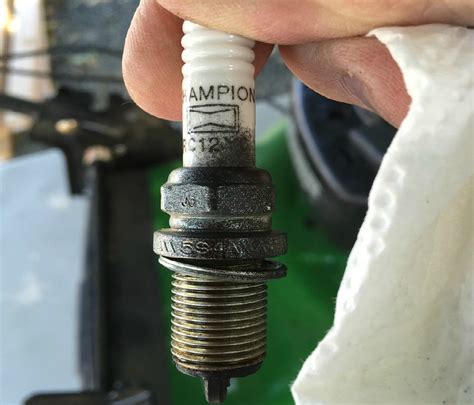The Telltale Signs Your Spark Plug Wires Need Replacing
Ignoring the condition of your spark plug wires can lead to a cascade of engine problems, impacting performance, fuel efficiency, and even your vehicle's longevity. Understanding when to replace them is crucial for maintaining a healthy and reliable vehicle. This comprehensive guide will delve into the telltale signs indicating it's time for new spark plug wires, helping you diagnose potential issues and make informed decisions about your car's maintenance.
Why are Spark Plug Wires Important?
Before diving into the signs of wear, let's understand the critical role spark plug wires play. These seemingly simple components deliver the high-voltage electrical current from the ignition coil to each spark plug. This precisely timed spark ignites the air-fuel mixture in the engine's cylinders, allowing for combustion and powering your vehicle. Damaged wires disrupt this crucial process, leading to a range of problems.
Telltale Signs Your Spark Plug Wires Need Replacing
Several clear indicators signal that your spark plug wires are failing and require replacement. Ignoring these signs could lead to more extensive and costly repairs down the line.
1. Misfires and Rough Idling
One of the most common symptoms of failing spark plug wires is engine misfiring. This manifests as a rough idle, sputtering, or hesitation when accelerating. The misfire occurs when the high voltage doesn't reach the spark plug consistently, resulting in incomplete combustion in one or more cylinders.
2. Reduced Engine Performance
If your engine feels sluggish, lacks power, or has a noticeable decrease in acceleration, worn spark plug wires could be the culprit. Weak or damaged wires compromise the spark's strength, reducing the efficiency of the combustion process and impacting overall engine performance.
3. Poor Fuel Economy
Inefficient combustion, a direct consequence of faulty spark plug wires, leads to reduced fuel economy. Your vehicle will burn more fuel to achieve the same level of power, resulting in higher fuel consumption and increased costs.
4. Check Engine Light Illumination
A consistently illuminated check engine light is a serious warning sign. While this light can indicate various issues, faulty spark plug wires frequently trigger the diagnostic trouble code (DTC) related to misfires. Having the code scanned by a mechanic can pinpoint the exact problem.
5. Visible Damage to the Wires
Sometimes, the problem is visually apparent. Inspect your spark plug wires for:
- Cracks or splits in the insulation: This allows the high voltage to leak, causing misfires and potentially damaging other components.
- Worn or frayed insulation: Exposure of the wire's internal conductor increases the risk of shorts and misfires.
- Burning or melting: This is a clear sign of excessive heat build-up, indicating potential problems with the ignition system or a significant problem with the wiring itself.
- Loose or corroded connections: Ensure the wires are securely connected to both the spark plugs and the ignition coil. Corrosion can significantly reduce conductivity.
6. Difficulty Starting the Engine
While not always the sole cause, faulty spark plug wires can contribute to difficulty starting the engine. A weak or inconsistent spark may not be sufficient to ignite the air-fuel mixture reliably, resulting in a longer cranking time or failure to start altogether.
How Often Should You Replace Spark Plug Wires?
The lifespan of spark plug wires varies depending on several factors, including vehicle make and model, driving conditions, and the quality of the wires themselves. However, a general guideline is to inspect them every 30,000 to 60,000 miles and replace them every 60,000 to 100,000 miles. If you notice any of the signs mentioned above, replace them sooner rather than later.
What Happens if You Don't Replace Worn Spark Plug Wires?
Ignoring worn spark plug wires can lead to several issues, including:
- Increased engine damage: Consistent misfires can cause significant damage to the engine's internal components, leading to costly repairs.
- Reduced fuel efficiency: You'll spend more on gas due to inefficient combustion.
- Failed emissions test: Misfires often result in failing emissions tests, potentially leading to fines.
- Complete engine failure: In severe cases, continued use with faulty spark plug wires can lead to catastrophic engine failure.
By understanding the telltale signs and taking proactive steps to replace your spark plug wires when necessary, you can ensure your vehicle remains reliable, efficient, and performs optimally for years to come. Remember, regular vehicle maintenance is key to avoiding costly repairs and ensuring your safety on the road.

